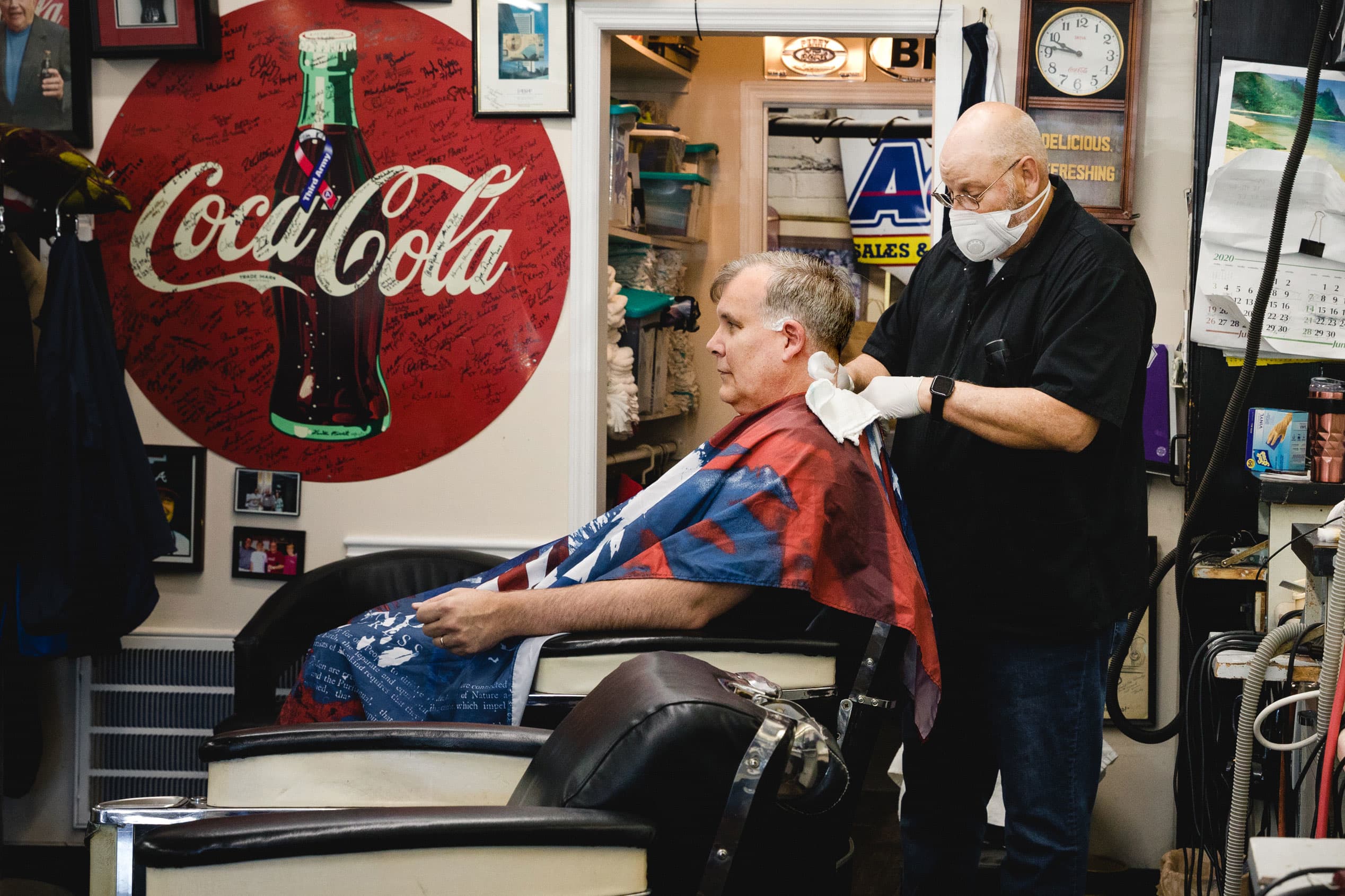A stylist wearing a protective mask works on a customer at a barbershop in Atlanta, Georgia, U.S., on Monday, April 27, 2020.
Dustin Chambers | Bloomberg via Getty Images
Since Georgia took the widely criticized step to reboot its battered economy last month, the state has seen new Covid-19 cases steadily climb but not spike.
It could take until later this month to know whether Georgia’s move to reopen — condemned by federal health officials and President Donald Trump at the time — contributed to a feared coronavirus resurgence, according to health experts in the state.
Georgia became one of the first states to lift its restrictions designed to limit the pandemic’s spread when Republican Gov. Brian Kemp let businesses including salons, gyms and bowling alleys open their doors on April 24. The state allowed restaurants to resume dine-in service on April 27 with restrictions. Kemp will keep bars, music venues and nightclubs closed at least through the end of the month, he said Tuesday.
Georgia, like many states, faces immense pressure to restart its economy as the toll from business shutdowns mounts. Among those eligible for unemployment insurance in Georgia, about 17% have filed claims since the outbreak swept through the state in mid-March.
But Georgia faces a delicate balance in trying to kick-start its economic activity. More than 35,000 Georgians had tested positive for Covid-19 as of May 11, according to the COVID Tracking Project.
That comes out to about 13% of the roughly 262,000 people tested, or 1 in 8, since the project began tracking data.
New cases in the state appear to have plateaued in recent weeks, increasing by roughly 700 per day since Georgia started reopening on April 24. But due to the disease incubation period and delays in data reporting, a fuller picture of how lifting restrictions affected Covid-19’s spread may not be available until the final days of May, according to Bob Bednarczyk at Emory University and John Drake at the University of Georgia.
Bednarczyk, an assistant professor at Emory’s Rollins School of Public Health, said even a sustained plateau rather than a steady decline in new cases would be worrisome.
“Right now, we’re not really out of the woods for what’s going to happen with this,” he said.
Drake, a professor of ecology, was the lead author on an April study that estimated Georgia’s social distancing measures implemented in March reduced Covid-19 cases by 81% and could have saved nearly 3,000 lives. It found relaxation of the restrictions could lead to as many as 38,000 more cases and 1,500 additional deaths by June 7.
He said a handful of uncertainties, such as how much people distance from one another by their own accord and how effective face coverings are in stopping transmissions, could influence how much easing restrictions increase the number of cases.
Some business owners also chose not to open their doors even though they had the option to restart operations.
As experts including key Trump administration official Dr. Anthony Fauci warn about the potential for a resurgence in states that reopen too quickly, Kemp has said he could reevaluate his strategy if conditions change.
“Many have warned of a ‘second wave’ and asked if we are willing to change course if conditions decline,” he told reporters Tuesday. “Let me be clear: we will continue to track the numbers and continue to heed [Georgia Health Commissioner Dr. Kathleen] Toomey’s advice. We will take whatever action is necessary to protect the lives and livelihoods of Georgians.”
Despite the unknowns in projecting how the disease will spread in Georgia in the coming weeks, Drake said precautions such as maintaining social distance, disinfecting surfaces and wearing face coverings will not hurt as states lift restrictions.
“We know they’re not going to have a negative effect, they’re only going to help. So people should be doing those things,” he said.
